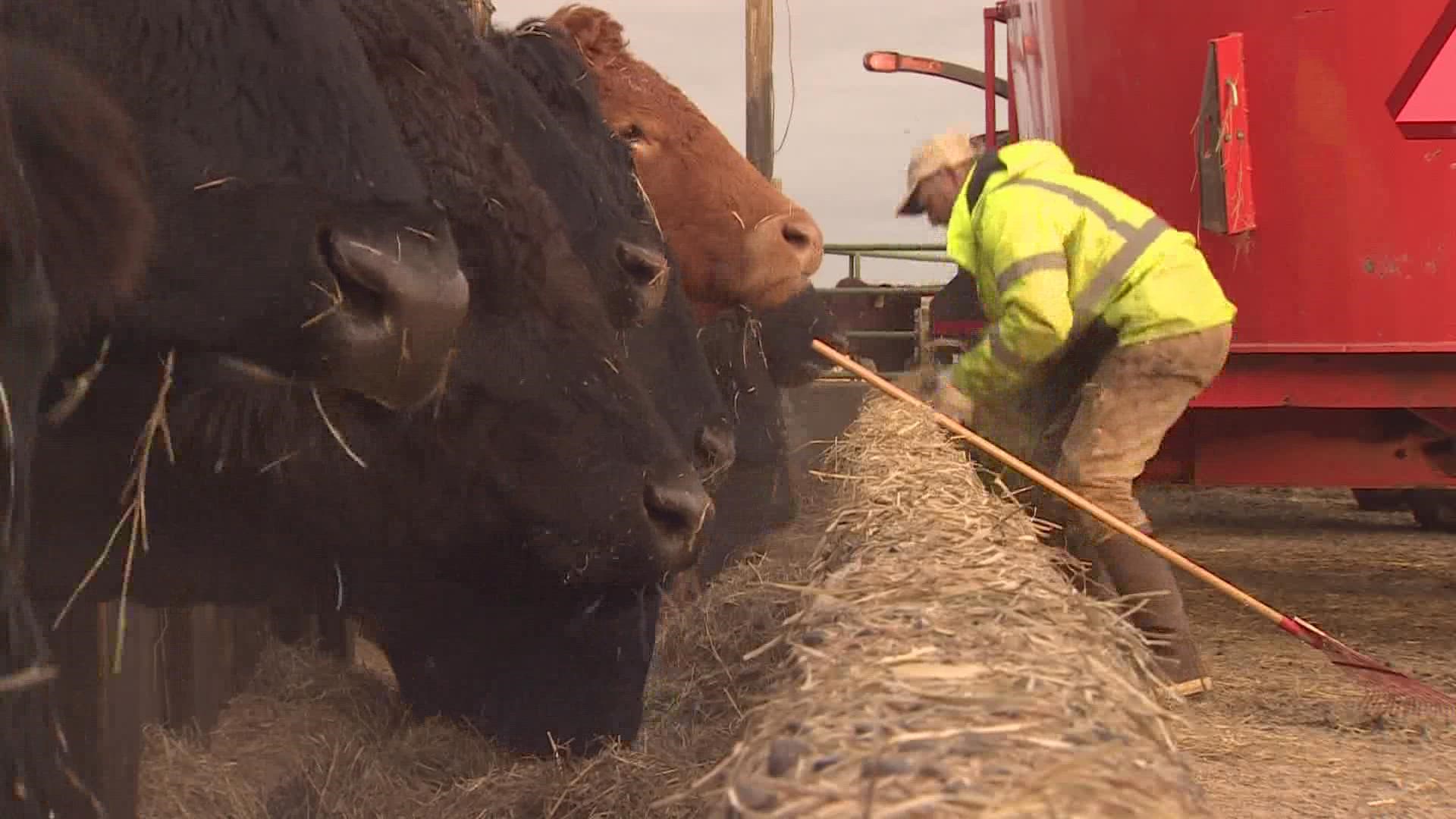STANWOOD, Wash. — When second-generation cattle rancher Jim Anderson thinks of the impact his farm has on climate change, two things come to mind.
"Fuel and feed are two of our highest inputs," said Anderson, who owns 80 cows on his 74-acre ranch, the Triple A Cattle Company in Stanwood.
Anderson is one of many farmers who could stand to benefit from a historic $19 billion investment in climate-smart activities. The money would come from the Inflation Reduction Act passed last year to fund several existing conservation programs over the next four years, all aimed at reducing greenhouse game emissions.
In November, the US Department of Agriculture's (USDA) National Resources Conservation Service was taking public comment on how best to use the funds. For example, improving program delivery and outreach to smaller or underserved producers.
For Anderson, he's hoping to see investments into fuel and feed efficiencies.
"If a cow is going to eat 35 pounds of grass a day will she have less emissions compared to a cow that eats 50 pounds a day will she have less emissions maybe?" Anderson asked while also pointing to the 1,800 gallons of farm diesel he used last year alone.
Greenhouse gas emissions from agriculture like livestock made up 11% of total U.S. greenhouse gas emissions in 2020, according to the Environmental Protection Agency.
But according to the Washington Cattleman's Association, the need for food is only going up.
"By 2050, we are going to need 50% more food to feed the world," said Chelsea Hajny, executive vice president.
Hajny credits Washington for already supporting ranchers on both the environmental impact and nutritional fronts.
"Cattle are in the top five of commodities traded annually so really a cornerstone of Washington's economy," Hajny said.
Hajny did recognize the importance of federal funding because she said it's expensive to change an industry that relies so heavily on water, land and fuel.
"Help us identify synergies, what are we already doing to produce beef and what can we do better in terms of what the environment needs," Hajny said.
The public comment period closed in December, but the USDA said comments will still be considered if possible.

